The Portrayal of Prophet Muhammad ﷺ in the Eulogies of Non-Muslim Poets
Last September in Kanpur, a peaceful religious procession carrying the slogan “I Love Muhammad” was distorted and misrepresented by the RSS and its affiliates, who used it to spread hatred and incite communal violence in the name of religion and Hindutva. This was largely done for political gain, particularly to divert public attention from real issues ahead of the Bihar elections.
However, the majority of people in the country neither support nor are inspired by such divisive acts aimed at igniting communal hatred. India has a long tradition of interfaith respect and understanding. Numerous Hindu scholars, poets, philosophers, authors, and pundits have studied, spoken, and written extensively about Prophet Muhammad ﷺ, the Qur’an, and Islam. Among them are Acharya Vinoba Bhave, Saint T. L. Vaswani, Swami Laxmi Shankar Acharya, Sane Guruji, Munshi Premchand, Colonel B. K. Narayan, and Pandit Sundar Lal—along with many other Hindu, Sikh, and Christian thinkers and poets—who have written sincerely and appreciatively about Prophet Muhammad ﷺ and Islamic teachings.
Non-Muslim Poets and the Tradition of Naʿt-e-Rasūl
In the early medieval period (8th–15th centuries), several Christian and Jewish scholars in the Middle East and Spain wrote about the Prophet Muhammad ﷺ. However, in India—from the 11th century onward—an atmosphere of interfaith respect and cultural harmony began to flourish. During this period, some Hindu saints and poets expressed admiration for the Prophet’s character, justice, and spirituality. Works such as Laxmi Narayan Shafique’s Mīrāj Nāma and Raj Makhan Lal Makhan’s poetry are among the earliest examples of writings that convey reverence for Prophet Muhammad ﷺ.
During the Mughal period (16th–18th centuries), Persian and Urdu literature flourished under the patronage of the royal court. Many non-Muslim poets and writers composed verses in praise of the Prophet ﷺ. Among them were Beni, a Hindu poet who wrote in both Urdu and Persian; Chandrabhan Brahman, a celebrated poet in the court of Shah Jahan; Mirza Raja Sawai Jai Singh of Amber; and Lalloo Lal, who authored prose works about the Prophet’s life and teachings.
In the modern age (20th century to the present), numerous non-Muslim scholars and writers have studied and admired Prophet Muhammad ﷺ for his exemplary leadership, justice, and humanity. Thomas Carlyle, in Heroes and Hero-Worship, described the Prophet as “a true hero and a man of truth and sincerity.” Alphonse de Lamartine, in Histoire de la Turquie, called him “the greatest of all men.” Annie Besant and R. Bosworth Smith also praised his noble character and profound influence on civilization, while Karen Armstrong, in her book Muhammad: A Prophet for Our Time, highlighted the Prophet’s compassion and his lifelong struggle for justice and equality.
In India, several poets have composed Naʿt poetry in praise of the Prophet ﷺ, and Muslim scholars have documented their contributions in various compilations. One such work is Bahār-e-Zamān, Bahār-e-Zubān (“The Spring of the Era, the Spring of Language”), a 685-page compilation supervised by Noor Ahmed Meerathi. On page 336, it provides detailed information about non-Muslim poets. Fani Muradabadi authored a 168-page book titled Hindu Shoʿarāʾ ka Nātiya Kalam (“Naʿt Poetry of Hindu Poets”), focusing on Hindu poets’ devotional compositions. The Raza Mustafa Press in Gujranwala published a 36-page booklet, Hindu Shoʿarāʾ ka Nazrāne ʿAqeedat (“Offerings of Devotion by Hindu Poets”). Raja Rasheed Mahmood released a monthly magazine on Naʿt in four volumes, featuring hundreds of compositions by non-Muslim poets. Dr. Dharmendra Nath published his own Naʿt collection titled Hamāre Rasūl ﷺ (“Our Prophet ﷺ”), which includes 472 Naʿt written by non-Muslim poets.
More recently, Prof. Abdul Mannan Tarazi compiled Naʿt Gūʾīyā Ghair Muslim (“Naʿt Compositions by Non-Muslims”), which gathers the works of 372 non-Muslim poets. Dr. Azhar Gulzar’s Sārā ʿĀlam Hai Munavvar Āp ke Nūr se (“The Entire World Is Illuminated by Your Light”) spans 336 pages and features 257 non-Muslim poets.
In addition, several other notable works include Naʿt poetry by non-Muslim poets, such as Nūr-e-Sukhan (“The Light of Poetry”) by Noor Ahmed Meerathi, Hindu Shoʿarāʾ aur Darbār-e-ʿAqeedat (“Hindu Poets and the Court of Devotion”) by Muhammad Majfuzur Rahman, and Āzān-e-Butkada (“The Call to Prayer from the Temple of Idols”) by Muhammad Deen Farooq.
The Compilation of Naʿt by Non-Muslim Poets
Throughout history, countless Muslim poets have written in admiration of the Prophet Muhammad ﷺ, including Ahmad Raza Khan, Hasan Raza Khan, Akhtar Raza Khan, and many others. Alongside them, numerous non-Muslim poets have also composed Naʿt poetry—some writing at least one poem in praise of the Prophet ﷺ, while others devoted entire volumes to celebrating his virtues and teachings.
Among the most notable is Dillu Ram Kausari, a renowned Punjabi Hindu poet celebrated for his heartfelt eulogies of Prophet Muhammad ﷺ. He composed around forty poems praising the Prophet, later compiled into several collections, including Gulshan-e-Naʿt Kausari, Āb-e-Kausar, Bazm-e-Kausari, Hindu ki Naʿt, and Bashar-e-Injeel. These works stand as remarkable expressions of a Hindu poet’s deep love and reverence for the Prophet ﷺ. Because of his devotion and poetic mastery, he is often honoured with the titles Ḥassān-e-Hind and Firdawsī-e-Hind.
Other distinguished contributions include Hadya-e-Shād (“Gift of Happiness”) by Maharaja Krishna Prasad and Zuhūr-e-Qudsī (“Divine Blossoms”) by Sadhu Ram Arzoo Sharanpuri—both phenomenal works in their own right. Professor Jagan Nath Azad also wrote numerous eulogies compiled in his collection Naseem-e-Ḥijāz (“Breeze of Hejaz”). Kalidas Gupta Raza compiled Ujāle (“Light”), while Lala Amar Chand Qais of Jalandhar praised the Prophet ﷺ in Urdu, Hindi, Punjabi, and English through his work Rasūl-e-Darshan (“Vision of the Prophet”). Likewise, Āhang-e-Ḥijāz (“Melody of Hejaz”) by Bal Mukund Arsh Malisani and Guldasta-e-Naʿt (“Bouquet of Naʿt”) by Aailyen Jaan Mukhlis stand as excellent examples of Urdu Naʿt composed by non-Muslim authors.
Furthermore, several non-Muslim scholars have written extensive works on the life and message of the Prophet Muhammad ﷺ. These include Paigambar-e-Islam (“The Messenger of Islam”), a 250-page book in Hindi by Vidyanand; Mahā Kāvyā Ḥaḍrat Muhammad (“The Great Epic of Prophet Muhammad”), a collection of 2,500 poems by Dr. Sagan Chand Muktaish; and Muhammad ﷺ Khand Kāvyā (“The Epic of Muhammad ﷺ”), comprising 1,500 poems by Dr. Ram Prasad Mishra.
These works collectively testify to the enduring admiration for Prophet Muhammad ﷺ that transcends religious boundaries and highlights the shared spiritual heritage of India’s diverse literary tradition.
Examples of Naʿt by Non-Muslim Poets
Dillu Ram Kausari writes:
کچھ عشقِ محمد میں یہی شرطِ مسلمان
کوثری ہندو بھی طلبگارِ محمد ہے
This couplet beautifully expresses the universal love for Prophet Muhammad ﷺ. It conveys that true faith in Islam lies in loving the Prophet, and even a Hindu of noble heart (Kausari Hindu) becomes a seeker of Muhammad’s love.
Arzoo Madho Ram of Saharanpur writes:
ازل ہی سے محمد کی ثنا خواں ہے زُبان میری
بیاضِ صبحِ ہستی پر لکھی ہے داستان میری
This verse reflects the poet’s eternal devotion to Prophet Muhammad ﷺ. He declares that from the very dawn of creation, his tongue has been praising the Prophet, and that the chronicle of his own life is inscribed upon the pages of creation itself — signifying that his very existence is devoted to remembering the Prophet ﷺ.
Azad Radha Kishan of Sonipat writes:
اُسی کے دم سے دنیا میں عُروجِ آدمیت ہے
محمدِ مصطفیٰ ﷺ سے مجھ کو بھی دل سے عقیدت ہے
Here, the poet emphasises that the greatness and moral refinement of humankind stem from Prophet Muhammad ﷺ. He affirms that the Prophet’s teachings elevated human civilisation to its highest ethical and spiritual heights, expressing sincere and heartfelt affection that transcends mere intellect and springs from deep emotion and spirit.
Kanwar Mahendra Singh Bedi Sahar writes:
عشق ہو جائے کسی سے کوئی چارہ تو نہیں
صرف مُسلم کا محمد ﷺ پہ اِجارہ تو نہیں
This couplet declares that love cannot be confined or controlled. The poet reminds us that devotion to Prophet Muhammad ﷺ is not the exclusive right of Muslims—people of all faiths can feel reverence for him. It presents a message of universal love and acceptance, showing how the Prophet’s noble character inspires affection across humanity.
Nathuram Sharma writes:
عاشقِ نبی کے عشق میں زر کی تو بات کیا
میری ہزار جان ہو قربانِ مصطفیٰ ﷺ
This verse expresses profound devotion and unreserved affection for Prophet Muhammad ﷺ. The poet declares that worldly riches are nothing compared to love for the Prophet, and that he would gladly sacrifice a thousand lives for him. It captures the poet’s deep emotional surrender and transcendent love.
Shish Chandar Saxena writes:
یہ ذاتِ مقدس تو ہر انسان کو ہے محبوب
مسلم ہی نہیں وابستۂ دامنِ محمد ﷺ
This couplet conveys that the sacred personality of Prophet Muhammad ﷺ is beloved by all humanity, not only by Muslims. The poet asserts that love for the Prophet crosses religious boundaries, allowing anyone to form a sincere and spiritual bond with him. It highlights the Prophet’s universal appeal and timeless influence.
Rohindar Vindar Jain writes:
آپ کے ماننے والوں میں ضروری تو نہیں
صرف شامل ہوں مسلمان رسولِ اکرم ﷺ
In these lines, the poet expresses that genuine admiration for Prophet Muhammad ﷺ is not confined to the Muslim community. Anyone who recognises his greatness can hold deep respect and devotion for him, reflecting the Prophet’s far-reaching moral and spiritual impact beyond all religious divisions.
Krishn Mohan writes:
کر رہے ہیں اُس کی عظمت کے سبب
برہمن بھی احترامِ مصطفٰی ﷺ
This couplet shows that even Brahmins—highly regarded for their learning and spirituality—honour Prophet Muhammad ﷺ for his greatness and virtuous character. It signifies that admiration for the Prophet transcends religious and social distinctions, uniting hearts in reverence for his noble example.
Conclusion
Many non-Islamic thinkers and scholars, especially Hindu poets, have expressed deep admiration for the Prophet Muhammad ﷺ in their writings. The list of those inspired by his message is vast and remarkable, including prominent figures such as Mahatma Gandhi. Their works stand as powerful reminders that the Prophet ﷺ is a symbol of peace, compassion, and mercy for all creation.
In contrast, certain groups, such as the RSS, Bajrang Dal, and other Hindutva organisations, have propagated hostility toward him for political motives. This stands in stark opposition to India’s pluralistic heritage and the constitutional values enshrined in Articles 25–28, which guarantee every citizen the freedom to profess, practise, and propagate their faith. These provisions ensure that the state remains neutral toward all religions and that religious institutions are free from political interference.
The works of poets and scholars from diverse backgrounds who praised Prophet Muhammad ﷺ reaffirm his universal appeal as a moral exemplar and mercy to the worlds. Their writings continue to serve as a bridge between communities, reflecting the enduring message of peace and humanity that the Prophet ﷺ embodied.
About the author:
Muhammed Asjad Raza is engaged in postgraduate research in Islamic and Human Sciences at Darul Huda Islamic University. He hails from Madhubani, Bihar.
References:
- Carlyle, Thomas. Heroes and Hero-Worship and the Heroic in History. London: James Fraser, 1840.
- Farooq, Muhammad Deen. Āzān-e-Butkada. Lahore: Naeem Publishers.
- Kausari, Dillu Ram. Gulshan-e-Naʿt Kausari. Amritsar: Urdu Press, 1930.
- Maharaja Krishna Prasad. Hadiya-e-Shad. Banaras: Arya Press.
- Sadhu Ram Arzoo Sharanpuri. Zuhūr-e-Qudsī. Saharanpur: Urdu Press, 1945.
- Azad, Prof. Jagan Nath. Naseem-e-Ḥijāz. Lahore: Urdu Academy, 1950.
- Gupta Raza, Kalidas. Ujāle. Delhi: Urdu Publications, 1955.
- Lala Amar Chand Qais. Rasūl-e-Darshan. Jalandhar: Urdu Academy, 1960.
- Bal Mukund Arsh Malisani. Āhang-e-Ḥijāz. Delhi: Markaz-e-Adab, 1952.
- Aailyen Jaan Mukhlis. Guldasta-e-Naʿt. Lucknow: Urdu Publications, 1965.
- Vidyanand. Paigambar-e-Islam. Delhi: Hindi Publications, 1950.
- Mishra, Dr. Ram Prasad. Muhammad ﷺ Khand Kāvyā. Allahabad: Hindi Sahitya Sammelan, 1970.
Disclaimer
The views expressed in this article are the author’s own and do not necessarily mirror Islamonweb’s editorial stance.

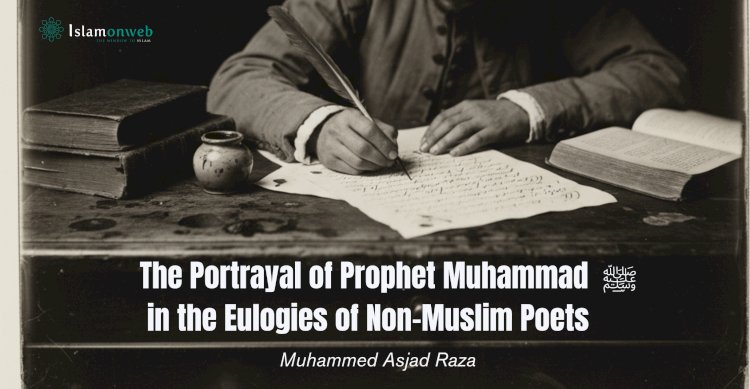


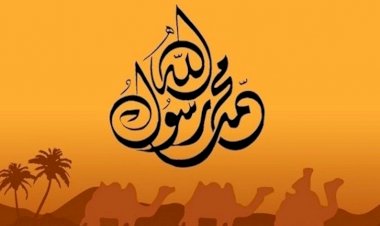
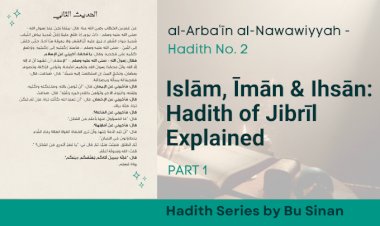
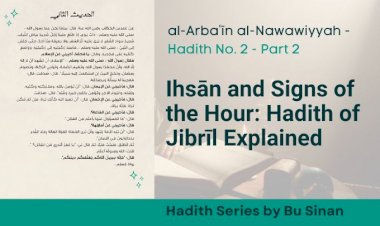
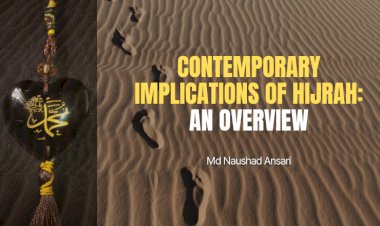
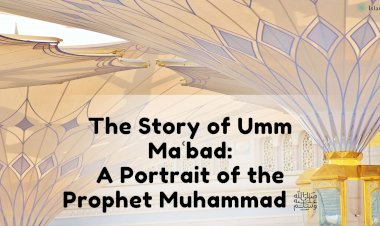
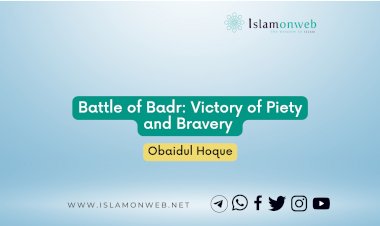














Leave A Comment